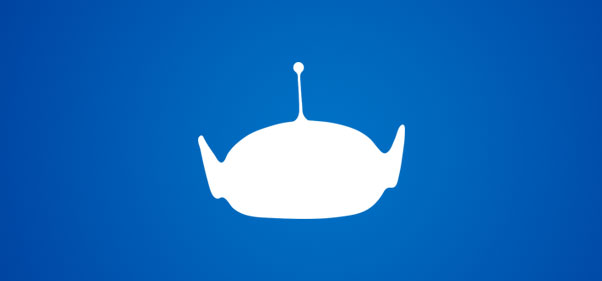
——-
What steps would you suggest to pursue a career in this field?
A) Become familiar with the various roles in making animation, and figure out what excites you. There is art, story, technical, animation, setdressing, cinematography, etc. Once you have an idea what you want to do, the steps to get there are clearer.
For example, to be a cinematographer, you should probably go to film school.
To work in technical fields like shading and effects and rendering you should probably study computer science.
B) Make a killer portfolio. Again, what is in the portfolio depends on what you want to do.
If you want to be a story artist, you should create your own comic book. Or perhaps a set of story boards for a short film.
To be an animator you should get a model off the web and animate it doing a set of real world things, like walking, sitting, or drinking a cup of coffee. If your character is executing flying ninja kicks it’s not as impressive. It looks more impressive to the untrained eye, but that’s not what we do. Even in a movie like The Incredibles, in most scenes Bob is walking, talking, arguing with his family, sipping a glass of champagne, etc. In very few scenes is he fighting off the killer robot.
C) Read the websites of the places you want to work. They all have submission guidelines. Follow them exactly. Send in your killer portfolio and follow up with the recruiting folks — nicely and professionally — and let your work speak for itself. If you are good you will get hired.
[Computer] generated clothing… is incredibly in demand. We have only 3 people out of 1000+ who can generate clothing. If you can demonstrate ability in this area you
are almost instantly hirable.
What influenced you to choose this career?
I studied physics and math in college, then went to work as a software developer. I stumbled into this in 1988 before there were any CG movies, and found this was the one thing that combined all my interests.
What are the up sides and down falls to your career?
I am in a technical discipline, which means I focus on HOW we’re going to do something rather than WHAT we’re going to do. For example, I don’t decide what the story is, who the characters are, etc. But I get to decide how they are made and animated and shaded and lit and etc.
What is the most difficult part of your job?
People. The best and worst parts of every job are related to people.
What different occupations are involved with your job?
In a given week I will write some software, create a web page or two, prepare and give several presentations, interview one or two potential new hires… mediate an argument, apologize to somebody for a bad decision, get a presentation about a new idea and make a decision that I hope is right, and so forth.
What benefits do you get?
Salary, health benefits, stock options, access to Pixar facilities (pool, gym, etc.)
How does your job affect your social life?
Most of my friends are related to my hobbies: swimming, hiking, bluegrass music. I don’t socialize much outside of work with my co- workers. I’m unusual in this — most of my friends at work are constantly hanging out after work with the same folks they hang out with AT work. I think that is a big danger in this career. It can take all your energy if you let it. Fortunately I had a pretty full life before I came to Pixar. For many of my co-workers, Pixar is their first and only job out of college and they’ve never created an identity away from work.
Have you had a successful job so far?
So far, so good. I’ve made it a point to try something new every few years, even if it meant doing something I wasn’t any good at. This has kept me excited about work. A year ago I was burned out and wanted a new job, and Pixar wouldn’t give me one, so I left. I took a leave of absence and started looking at other things to do. They called me back and offered me the switch from production to tools. I went from being a user of the software to being in charge of the team that writes it. I’m new to this and frankly, I’m not as good at it as I was in my old job. But I’m getting better every day and that is really keeping me excited about things.
Would you have any suggestions in order for one to make it into this field?
My biggest suggestion for "breaking into the field" is to get to work on some computer generated animation. Get to work now. Make some images. Figure out what excites you, and dig really deep into it. Do things that you think cannot be done.
Every year we see a bunch of portfolios that have incredible pictures of water surfaces, with beautiful waves, sunlight glinting off the whitecaps, etc. And if we’d seen that 10 years ago we’d have hired that person. Because 10 years ago the software couldn’t do that. But nowadays that kind of thing can be done by a plugin that you can download off the web. So anybody can make that picture, and thus we’re not interested in that picture anymore.
Show me something that is not easy! Something super technical, or funny, or beautiful.
Every one of our movies is impossible on the day we start it. We know we’ll have to figure out how to do it as we go. But we are confident because we basically only hire people who have the knack of doing the impossible.
Do something impossible.
——-
Thanks again, Stephanie for such an interesting article, the questions were really informative! I hope this helps anyone and everyone who wants to work at Pixar!
Last modified: August 22, 2008

Awesome article Martin!
XoXoX
Steph
Awesome interview Steph! 🙂
Good job both of you! this was a good read.
Animating at Pixar would be my ideal job, but I’m not going to be too close-minded about it.
I’ll be happy to animate anything anywhere, because that’s just what I love to do.
Anyway, I always love reading people at Pixar talk about getting in to Pixar, so thanks for the article.
Wow. I needed that….
Thank you very much for sharing that interview/article with us, Stephanie and martini!